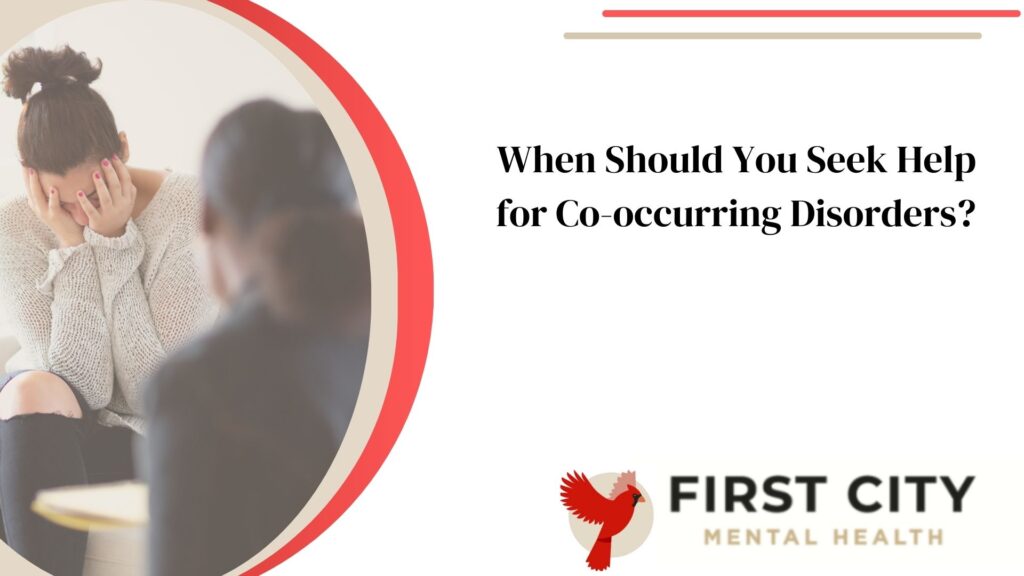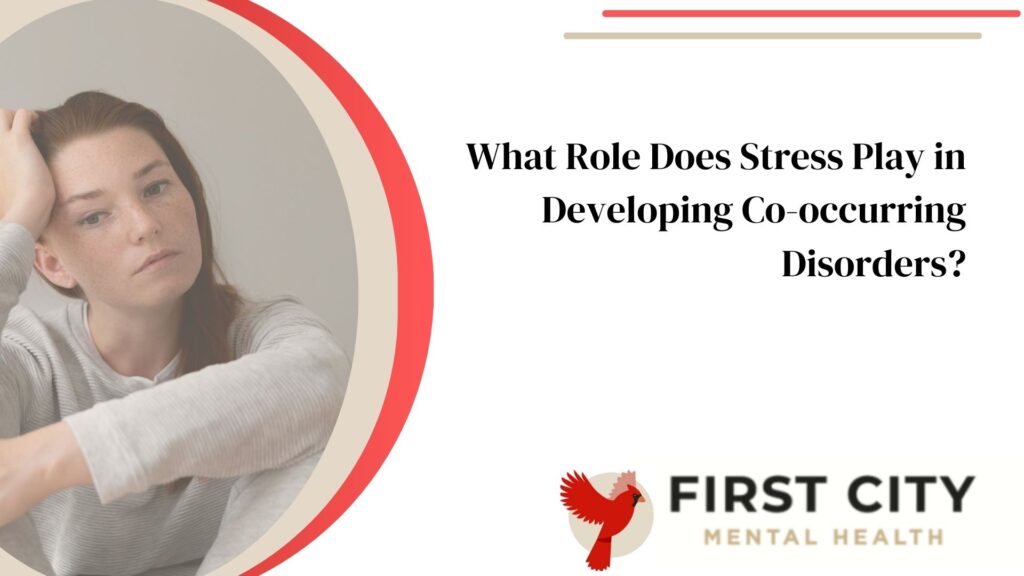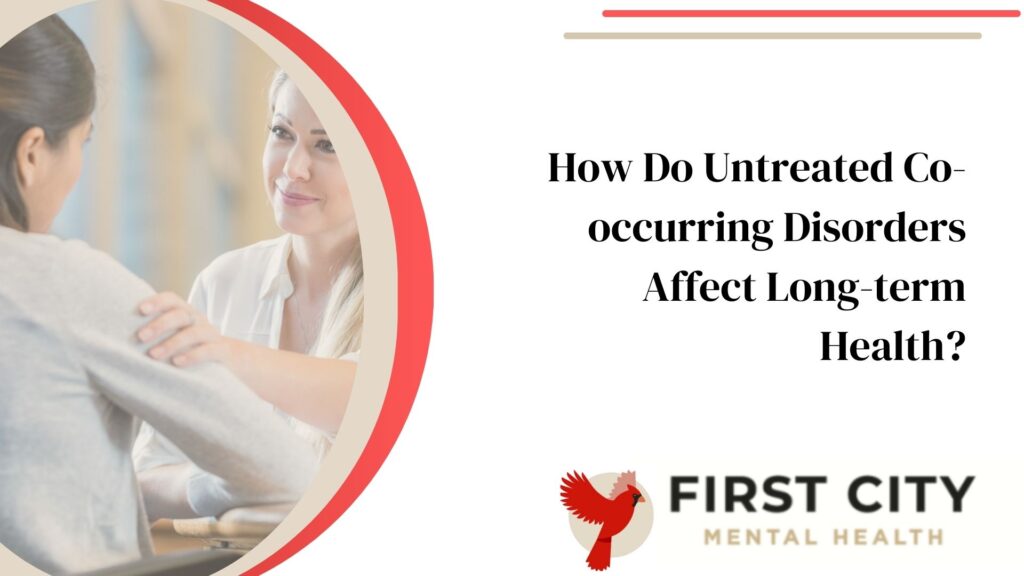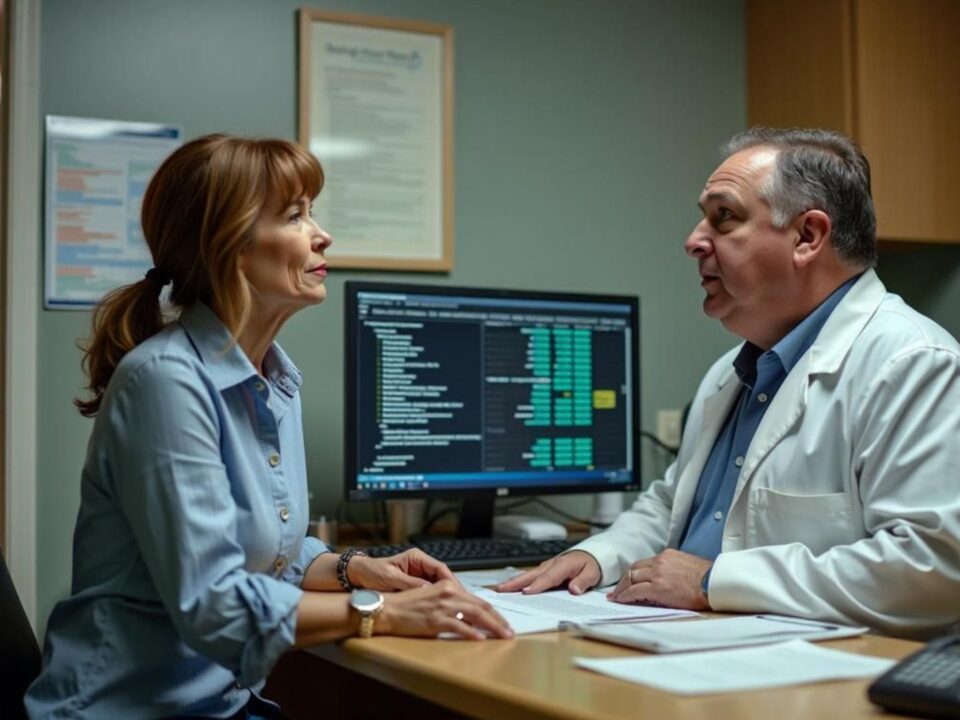
How Long Does Treatment for Co-Occurring Disorders Typically Take?
January 21, 2025
Why Is Co-occurring Disorders Treatment Different from Other Conditions?
January 21, 2025Are you struggling with both mental health issues and substance use? It’s common for these problems to occur together, making life even harder. You might feel overwhelmed or unsure about where to turn for co-occurring disorders treatment.
One key fact to know is that co-occurring disorders, also known as dual diagnosis, often require specialized treatment. This means addressing both your mental health and substance use at the same time.
This article will help you understand if you need treatment for co-occurring disorders. We’ll cover essential signs to look out for and show how getting the right help can change your life.
Keep reading to find out more!
Key Takeaways
- Look for signs like feeling anxious, very sad, and using substances.
- Seek help if daily tasks become hard or if you think about self-harm.
- Stress can make both mental health issues and substance use worse.
- Untreated disorders can lead to more severe health problems.
- Early treatment helps improve life and long-term health.
What Are the Key Signs of Co-occurring Disorders?
You may wonder if you need co-occurring disorders treatment in Kokomo, Indiana. Look for these key signs:
- Simultaneous struggles with mental health and substance use: Both issues happen at the same time.
- Emotional self-harm leading to addiction: You harm yourself emotionally, which can lead to substance abuse.
- Pervasive sadness and loss of interest: This indicates Major Depressive Disorder (M.D.D.).
- Intense feelings of fear and worry: These are linked to anxiety disorders.
- Emotional dysregulation and unstable relationships: This points to Borderline Personality Disorder (BPD).
- Complex medical challenges: You face more health problems that require longer treatments.
- Need for customized treatment plans: Personalized plans help improve your outcomes.
How Can Mental Health Issues Affect Substance Use?
Mental health issues can lead to substance use. Anxiety disorders may cause a person to drink alcohol or take drugs to ease fear and worry. People with Major Depressive Disorder might turn to substances for self-medication.
Emotional pain often drives individuals with Borderline Personality Disorder to substance use. They try to handle mood swings and impulsive actions this way. Grief and loss also push some people toward alcohol or drugs, seeking relief from sadness.
Recognizing such patterns is crucial for getting the proper co occurring disorders treatment in Kokomo, Indiana.
When Should You Seek Help for Co-occurring Disorders?

Seek help if you experience thoughts of self-harm or suicide. Persistent emotional pain might lead to these feelings, pointing to a need for treatment.
Symptoms like anxiety affecting daily tasks also signal that it’s time for help. Early diagnosis and effective treatments can make a big difference. Look into integrated treatment for co-occurring disorders programs nearby.
What Symptoms Indicate You May Have Both Mental Health and Substance Use Disorders?
Recognizing the symptoms of co-occurring disorders is crucial. The signs often overlap and can be confusing.
- Persistent Anxiety: Feeling nervous or worried for a long time.
- Severe Depression: Experiencing extreme sadness and lack of interest in activities, known as Major Depressive Disorder (M.D.D.).
- Emotional Dysregulation: Struggling to control emotions like anger or sadness.
- Substance Abuse: Using drugs or alcohol to cope with mental health issues.
- Self-harm Behaviors: Hurting yourself to manage emotional pain, potentially leading to addiction.
- Prolonged Grief: Finding it hard to recover from loss, worsening substance use, and mental health problems.
- Withdrawal Symptoms: Feeling sick when not using drugs or alcohol.
- Isolation: Avoiding friends and family due to substance use or emotional struggles.
- Mood Swings: Experiencing rapid changes in mood without clear reasons.
Identify these patterns early for effective treatment for co-occurring disorders treatment centers.
How Can Co-occurring Disorders Treatment Impact Daily Life?
Co-occurring disorders impact daily life in many ways. They can lead to dramatic and erratic behavior. This makes it hard for people to form and keep relationships. Anxiety and fear often make doing everyday tasks difficult.
Simple activities like going to work or school become challenging.
Major Depressive Disorder symptoms hinder participation in routine tasks. Emotional self-harm might occur as a way to cope, affecting mental health further. Adolescents with personality disorders struggle with social interactions from a young age, setting patterns that last into adulthood.
Stress levels rise, making it hard to handle day-to-day responsibilities effectively. You should refer to co-occurring disorders treatment centers.
What Role Does Stress Play in Developing Co-occurring Disorders?

Stress triggers the emergence of disorders paired with substance use. It can worsen Major Depressive Disorder (M.D.D.) and anxiety, leading some to self-medicate. Post-Traumatic Stress Disorder (P.T.S.D.) also causes stress that makes people more likely to turn to drugs or alcohol.
Recognizing stress’s impact is vital for identifying co-occurring disorders and treatment needs. High stress contributes to emotional self-harm and addiction, complicating mental health issues further.
Seeking integrated treatment for adult co-occurring disorders treatment can address both problems at once.
Can Self-diagnosis of Co-occurring Disorders Be Accurate?
Self-diagnosis of treatment for co occurring disorders can be tricky and often wrong. Proper diagnosis needs a thorough check by a skilled mental health expert. Symptoms of these disorders may overlap, making self-diagnosis tricky.
People with personality disorders face more challenges in diagnosing themselves.
For accurate treatment for co-occurring disorders, seek help from professionals. They use detailed tests to pinpoint issues correctly. Treatment of co-occurring disorders involves handling both mental health and substance use problems together.
How Do Untreated Co-occurring Disorders Affect Long-term Health?

Self-diagnosis can be tricky. Untreated co-occurring disorders often worsen long-term health. Major Depressive Disorder (M.D.D.) can cause lasting symptoms like fatigue and low mood. This may lead to physical issues such as heart disease or diabetes.
Anxiety from untreated disorders causes avoidance behaviors, affecting daily tasks. Lack of treatment of co-occurring disorders.
might escalate emotional self-harm to severe injury or suicide risk. Financial ruin, job loss, and strained relationships become expected outcomes without proper care for addictive disorders.
Final Thoughts
Recognizing co-occurring disorders is critical. Look for signs like mood swings and substance abuse. Mental health issues can make substance use worse. Seek help if you notice these symptoms together.
Early treatment can improve daily life and long-term health. Check local resources, like those in Kokomo, Indiana, for co-occurring disorders treatment program support.
Take action today!
F.A.Q.s
What are co-occurring disorders?
Co-occurring disorders are when a person has both mental health issues and substance abuse problems at the same time.
How do I know if I need adult co-occurring disorders treatment?
You might need adult co-occurring disorders treatment if you struggle with both addiction and mental health symptoms like depression or anxiety.
Why is specialized treatment for co-occurring disorders necessary?
Specialized treatment for co occurring disorders addresses both issues together, improving chances of recovery compared to treating them separately.
Where can I find effective co-occurring disorders treatment in Kokomo, Indiana?
In Kokomo, Indiana, some facilities offer comprehensive care for those needing help with co-occurring disorders.






